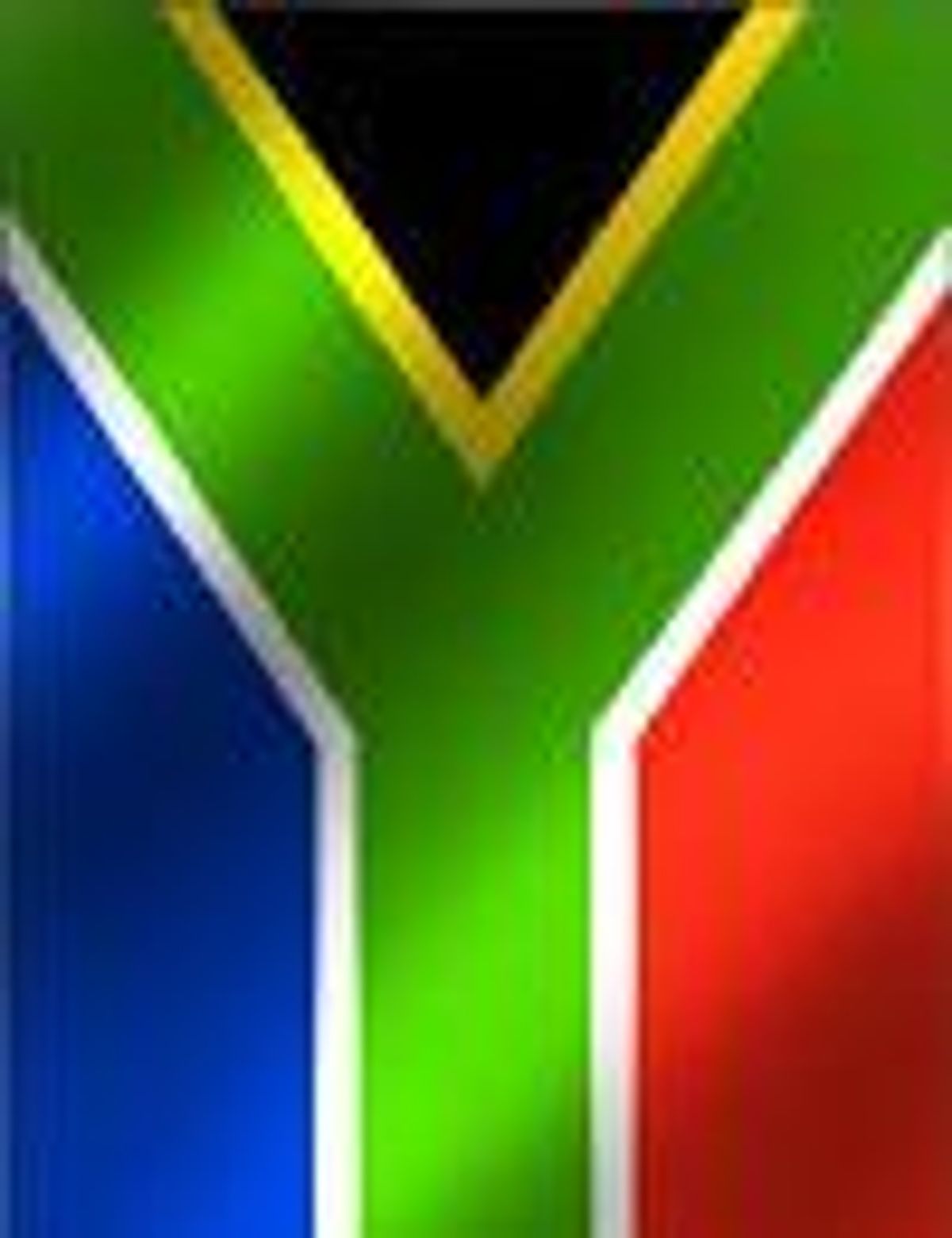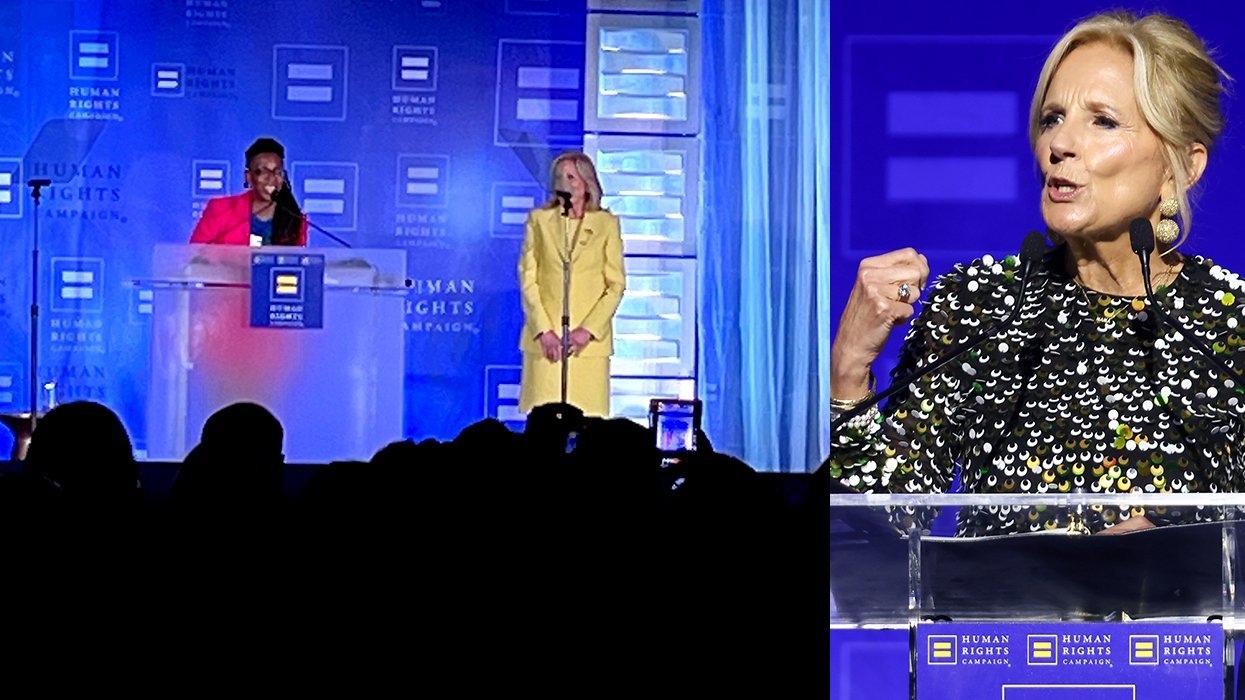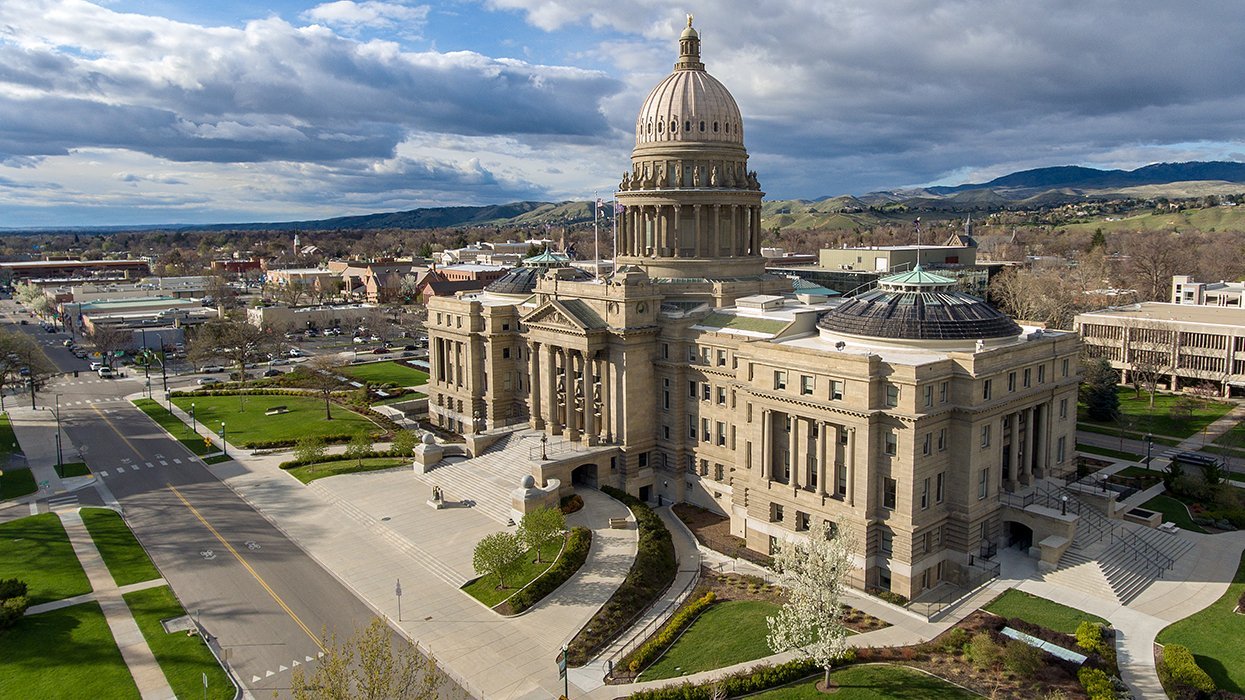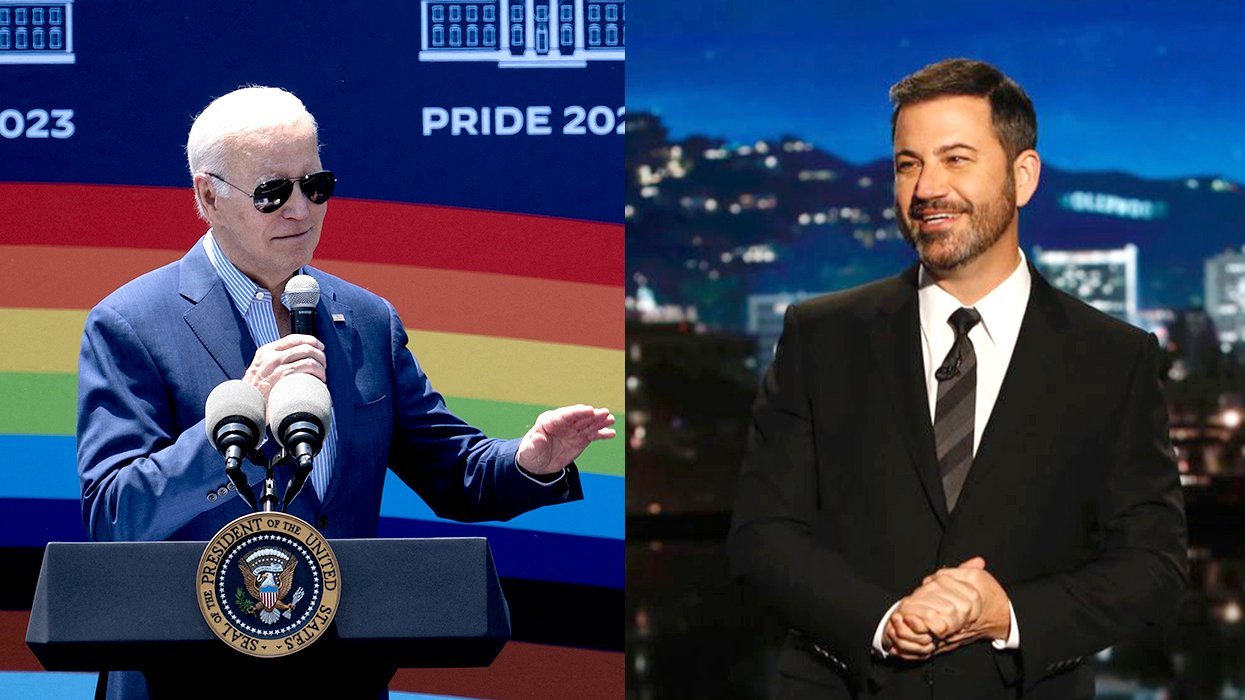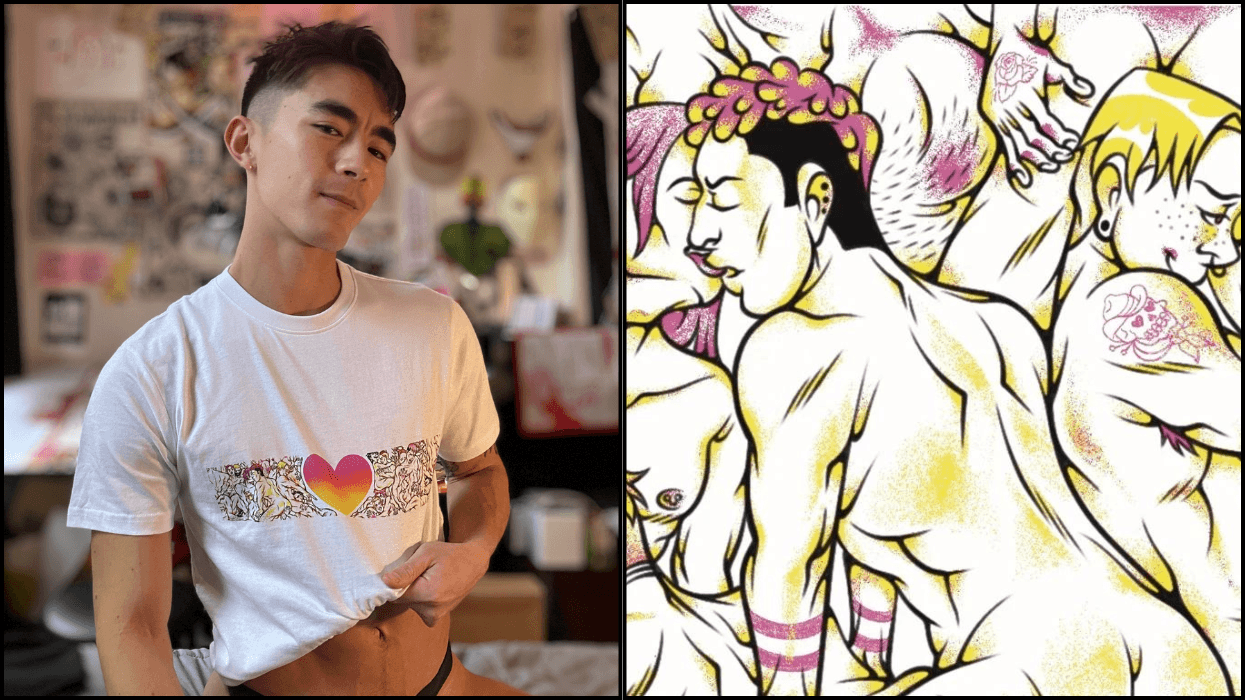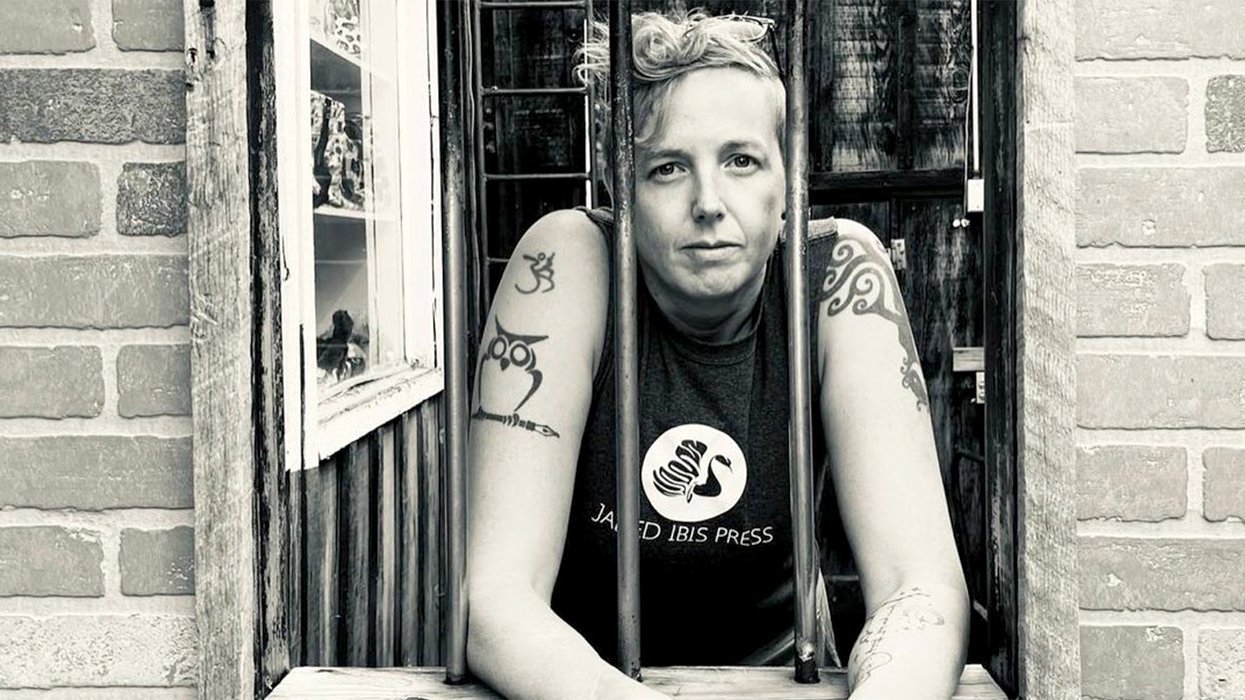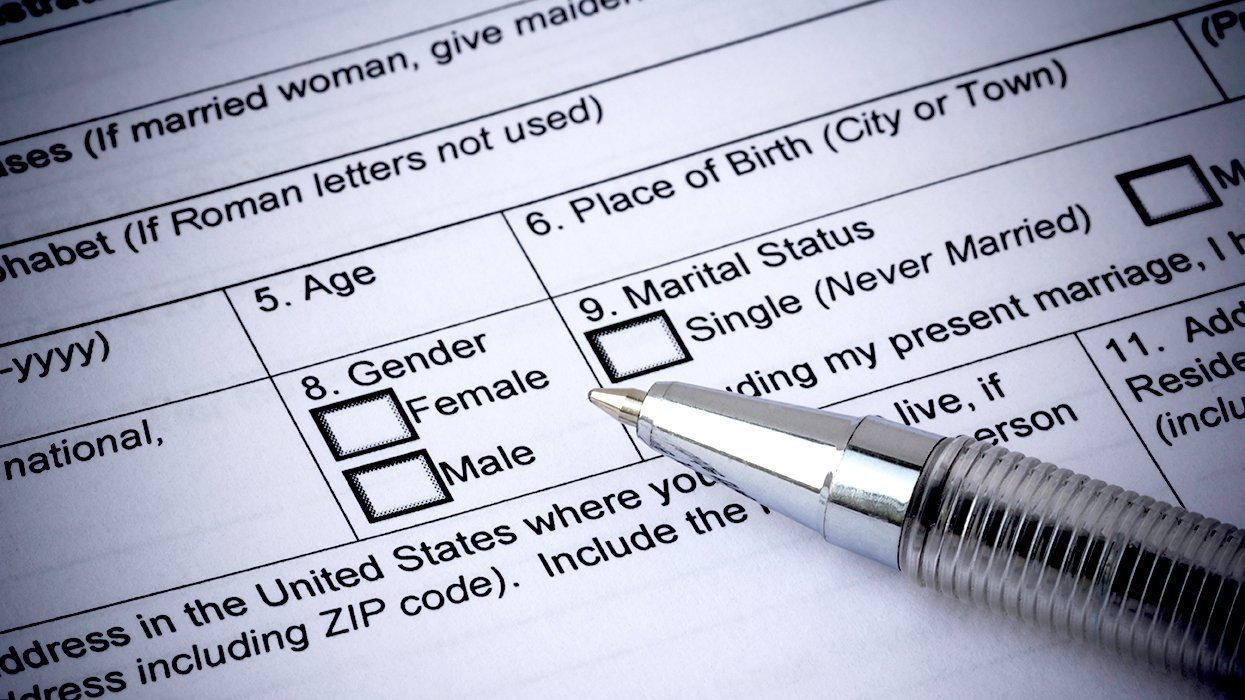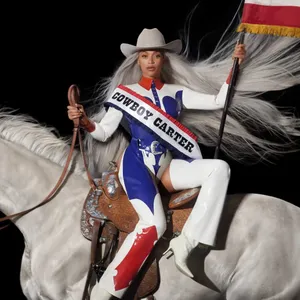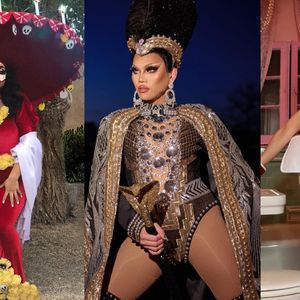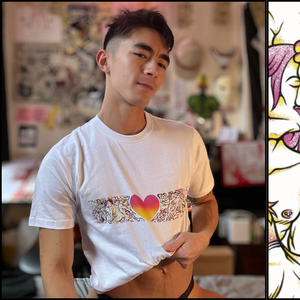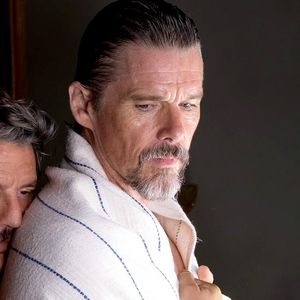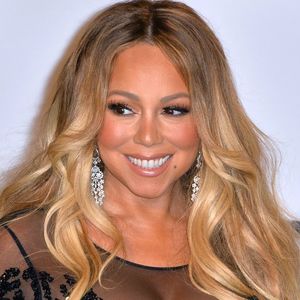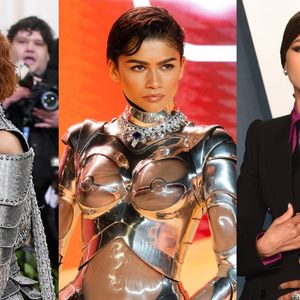At an informal,
unlicensed bar at a house in a remote corner of Soweto,
South Africa, men and women sip lukewarm beer, mingle,
flirt, and sometimes dance to driving and monotonous
Kwaito rhythms. The bar, called a shebeen in
the townships, is one of the places where young black
gays don't have to hide who they are, where they can
talk openly and find companionship and a safe haven in an
often hostile township.
South Africa in 1996 was the first country to
adopt a constitution that protects people from
discrimination based on sexual orientation. Under its
terms, the Constitutional Court ordered the government to
legalize same-sex marriage by year's end.
Partly as a result, the country has the most
open gay community on a continent where homosexuality
is usually driven underground and portrayed as
un-African and an unwanted legacy of colonialism and white
culture. But legal protection does not guarantee
acceptance or tolerance. The reality is often a life
of loneliness, fear, rape, violence, and sometimes
even murder.
''I've been raped six times, five times just
because I am gay. I was raped by men I know who wanted
to show me what it means to be a woman. They thought
it would change me, that it would keep me from being gay,''
said a young black lesbian from Soweto who asked not to be
identified by name for fear of reprisals.
Human Rights Watch said early this year that
lesbians in South Africa face abuse and violence
simply for not fitting social expectations of how
women should act. At a township outside Cape Town last
February, 19-year-old lesbian Zoliswa Nkonyana died
after she was chased by a mob, beaten with golf clubs
and bricks, and stabbed because of her sexual
orientation. No one was arrested, said Donna Smith, head of
the Forum for the Empowerment of Women and a member of
the Coalition of African Lesbians.
''We work with black lesbians in the townships,"
said Smith. "One of the first things we did was
organize an antihate crime campaign. At the first
meeting we asked how many had been the victims of a
hate crime or had first-hand knowledge of one, and everyone
in the room put her hand up."
During a gay pride march last year, she said,
the forum's float was attacked by people throwing
bottles because it portrayed homosexuality as a
natural part of African culture. ''What is un-African is
homophobia,'' said Smith. ''Some people believe
homosexuality is an idea brought here by the white
man. But it has always been here. What the white man brought
was homophobia clothed in religious doctrines that we did
not have before.''
Anthropologists have found evidence that
homosexuality was widely tolerated in many parts of
precolonial Africa. For example, E.E. Evans-Pritchard
reported that until the practice died out in the early
20th century, male Azande warriors in the northern Congo
routinely married male youths who functioned as
temporary wives.
In the new, democratic South Africa gay people
want to believe their sexual orientation doesn't
matter, said Smith. But to many it still does. So gay
people find safety in numbers at places where they know they
will be safe and accepted.
At the shebeen, the owner, Gundi Dube, a short
jovial man with a large gold chain inside the open
neck of his sports shirt, greets new arrivals at the
gate, passing judgment on whether it is safe to let them
inside the club's cramped courtyard.
Dubi, known to all simply as Scotch, greets one
new arrival, a woman, with a warm embrace and
announces: ''It's OK, she is one of us. She is a
policewoman...but it is OK because she is one of us.''
''This is the new South Africa. We were all in
the antiapartheid struggle together, and now nobody
cares if you are gay or straight,'' said one
middle-aged man. But then, almost in the same breath, he
asked to be identified only as Cassie because he
didn't want people outside the club to know he was gay.
As he talks he becomes annoyed by Sipho, a tall,
thin young man in white jeans and a faded olive drab
Eisenhower jacket who dances alone nearby to the loud
Kwaito music. Sipho tries to convince anyone who will listen
that he is really the son of Libyan leader Moammar Gadhafi.
''I really don't like that kind of guy,'' said
Cassie, after Sipho made crude advances. ''The problem
with gay men in the townships is they are so
promiscuous. It is killing us. AIDS is killing us,'' said
Cassie, who says he is still mourning the recent death
of his partner of 18 years.
South Africa, after India, has the second
highest number of people infected with HIV. In
Southern Africa, most transmission of HIV is by
heterosexual contact. But a study in Durban earlier this
year estimated that a third of South Africa's
gays are HIV-positive.
''I'm HIV-positive because of one of the
rapes,'' said the young black lesbian who said she had
been raped six times. ''I'm just angry. I'm angry all
the time. And it is lonely. You are so lonely when you are
gay and afraid in the townships.''
In an effort to deal with her rape, fears, and
loneliness, she said she had turned to writing and
poetry. ''The smell of hate never goes away. The
thought of betrayal stays and remains within my thoughts,
sight, senses, and deep within my soul and spirit. It
has created continuous and uncontrollable anger. It
has filled me with hate. It has made me think and feel
I am mad, and sometimes it hits me like I am worth
nothing,'' she wrote in one recent essay.
At the Nunbither restaurant on a busy street in
the heart of Soweto, Temba Mabaso drinks cocktails at
a table next to the sidewalk and says she just doesn't
care what other people think. ''I struggled for 14 or 15
years with being gay,'' she said. ''I am not going to
struggle anymore. I don't expect people to love me.
But I do expect them to understand me and respect me
and to understand that I am not going to go away.''
Smith said in most of the rest of Africa gay
life has been driven underground by discriminatory
legislation and hostility often fanned by homophobic
comments by politicians. Deputy President Jacob Zuma said in
a September speech that same-sex marriages were ''a
disgrace to the nation and to God.'' He also said:
''When I was growing up a gay would not have stood in
front of me. I would knock him out.'' He later apologized,
but the pain he caused lingered among gay people.
Homosexuality is illegal in Zimbabwe, Kenya,
Uganda, Nigeria, Tanzania, Ghana, and most other
sub-Saharan countries. In Zimbabwe, President Robert
Mugabe fueled homophobic sentiment by declaring that gays
were ''worse than pigs or dogs.'' Daniel Arap Moi,
when he was president of Kenya, called homosexuality a
''scourge.'' Ugandan president Yoweri Musevni ordered
police to round up and arrest gays.
South Africa is different, Smith said. Gays
are more visible and vibrant. Because of legal
protections attitudes are changing slowly, step by
step. ''But the country still has a long way to go,'' she
said. (Terry Leonard, AP)
